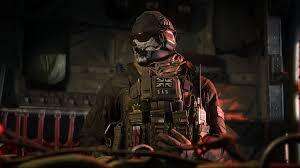After releasing a general overview of Call of Duty’s complicated matchmaking process earlier this year, Activision is now going into granular detail on the factor it prioritizes most: ping. The deep dive is the first of four promised white papers on the subject, with Activision committing to sharing its approach with industry peers.
As revealed in January’s outline, the most heavily weighted factor in Call of Duty’s matchmaking is ping–the time it takes for data to travel from a player’s game to the server running it. High ping can result in a bad gaming experience, with other players seeming to warp or teleport, or missing shots that appeared to be accurate.
Activision explains in the white paper that the most important statistic when it comes to ping is something it calls delta ping, which is the difference between a player’s best possible data center, and the data center they end up playing on. While it would be possible to have a player queue only for their optimal data center, Activision explains that this would lead to long wait times for players searching for a match early in the morning, for example, or queueing for modes that require a high player count.
Instead, the complicated matchmaking algorithm looks for the best possible option that balances ping with other factors such as skill-based matchmaking, platform, and input devices, all while keeping wait times as short as possible.
Call of Duty’s approach to this uses a feature it calls “backoff.” In short, the longer a player spends waiting to be matched, the more flexible the game will be on other elements of matchmaking. COD uses delta ping for this system, with the acceptable threshold slowly being “backed off” the longer a player waits. The delta ping eventually has a fixed cutoff point above which a player won’t be matched, though Activision notes this cutoff is lower in popular regions like North America, and higher in regions like Africa where not as many players will be online at any one time.
Overall Activision says the system works well for Call of Duty, with statistics showing that 95% of players are matched within 20 milliseconds of their best data server. While there are outliers, these usually encompass players who are searching at unpopular times of day for their region.
The full 19-page white paper goes into a lot more detail on the systems that drive Call of Duty’s matchmaking, with more on the way. The next white paper is expected to release in June this year, and will delve into one of the more contentious aspects of COD’s matchmaking–skill.
